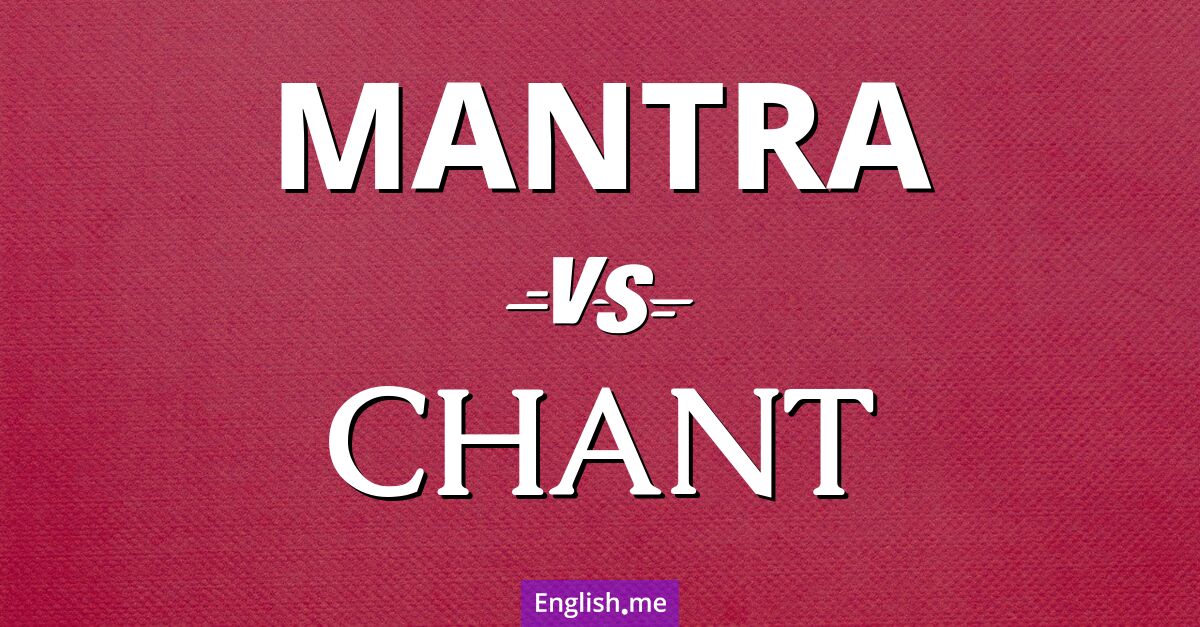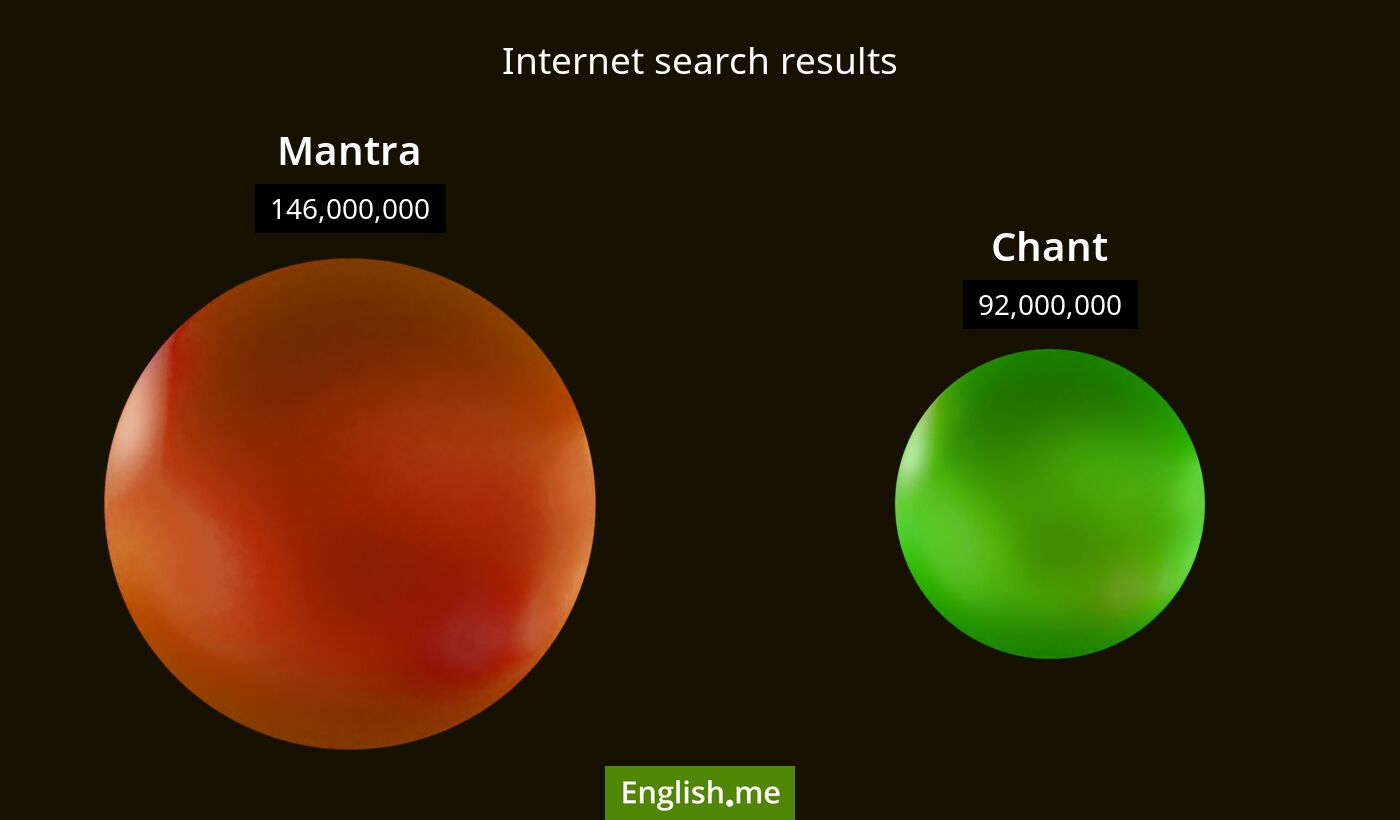"Mantra" vs. "chant": shared rhythms, subtle differences

 What is similar?
What is similar?
Both "mantra" and "chant" involve the repetition of words or phrases, are often used in religious or spiritual contexts, can be spoken or sung, and can have a calming or focusing effect.
 What is different?
What is different?
"Mantra" is typically a sacred word or phrase with spiritual significance used individually in meditation practices, especially in Eastern religions like Hinduism and Buddhism. In contrast, a "chant" refers to the rhythmic speaking or singing of words or sounds, often performed collectively, and can be secular (e.g., sports chants) or religious (e.g., Gregorian chants in Christianity). Mantras may focus on sound vibrations and may not always be in an understandable language, whereas chants usually involve coherent words or phrases.
 Which one is more common?
Which one is more common?

 Examples of usage
Examples of usage
Mantra- She repeated the mantra silently to herself during meditation.
- "Love and kindness" became his daily mantra.
- The yoga instructor taught them a powerful mantra to enhance focus.
- The crowd began to chant the team's name as the game started.
- The monks gathered in the temple to chant their evening prayers.
- Protesters marched down the street, chanting for justice.

 English
English español
español française
française italiano
italiano deutsche
deutsche 日本語
日本語 polski
polski česky
česky svenska
svenska Türkçe
Türkçe Nederlands
Nederlands